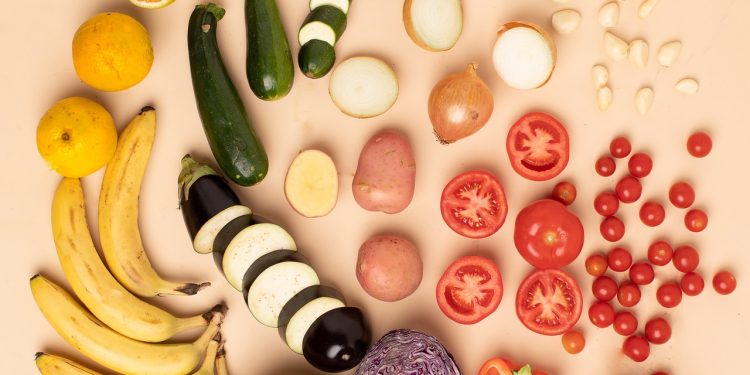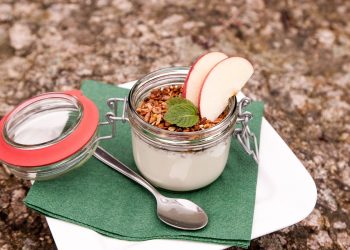Feeling drained or lacking the energy to get through your day is a common challenge in modern life. While factors like stress and inadequate sleep play a role, the food you eat has a profound impact on your energy levels. By focusing on proper nutrition, you can fuel your body and mind effectively. Here are actionable strategies to improve energy levels through diet.
Start Your Day with Balanced Breakfasts
Skipping breakfast can leave you feeling sluggish, while a well-balanced meal provides the fuel you need to jumpstart your day.
What to Include:
- Complex Carbohydrates: Foods like oats, whole-grain bread, and quinoa provide slow-releasing energy.
- Protein: Incorporate eggs, Greek yogurt, or plant-based options like tofu to sustain energy.
- Healthy Fats: Add avocado or a sprinkle of nuts for a steady release of energy throughout the morning.
- Fruits and Vegetables: Include fresh produce like berries or spinach for an antioxidant boost.
Stay Hydrated
Dehydration is a common but often overlooked cause of fatigue. Water plays a crucial role in transporting nutrients and oxygen to cells, so even mild dehydration can reduce energy levels.
Tips to Stay Hydrated:
- Drink water throughout the day, aiming for 8-10 glasses.
- Add a slice of lemon or cucumber to your water for flavor.
- Include hydrating foods like watermelon, cucumber, and oranges in your meals.
Balance Blood Sugar Levels
Fluctuating blood sugar levels can lead to energy crashes and cravings. Maintaining stable levels throughout the day is key to sustained energy.
How to Balance Blood Sugar:
- Eat Regularly: Have small, balanced meals or snacks every 3-4 hours.
- Combine Nutrients: Pair carbohydrates with protein or healthy fats to slow digestion and stabilize blood sugar.
- Choose Whole Foods: Opt for whole grains, legumes, and unprocessed foods over refined carbs and sugary snacks.
Incorporate Iron-Rich Foods
Iron is essential for carrying oxygen to your cells, and a deficiency can leave you feeling tired and weak.
Iron Sources:
- Animal-Based: Red meat, poultry, and fish.
- Plant-Based: Lentils, beans, tofu, spinach, and fortified cereals. Pair these with vitamin C-rich foods like citrus fruits to enhance absorption.
Don’t Forget Vitamin B12
Vitamin B12 is crucial for red blood cell production and energy metabolism. Deficiencies are common, particularly in people following vegan or vegetarian diets.
B12 Sources:
- Dairy products, eggs, fish, and fortified plant-based milks.
- Supplements may be necessary for those with limited dietary intake or absorption issues.
Snack Smartly
Snacking can either boost your energy or lead to an afternoon slump, depending on your choices.
Smart Snack Options:
- A handful of almonds or walnuts paired with an apple.
- Whole-grain crackers with hummus or guacamole.
- Greek yogurt topped with granola and berries.
Prioritize Omega-3 Fatty Acids
Omega-3s support brain health and reduce inflammation, both of which contribute to sustained energy.
How to Get Omega-3s:
- Fish: Include salmon, mackerel, or sardines in your meals.
- Plant-Based Sources: Add chia seeds, flaxseeds, and walnuts to your diet.
- Consider algae-based supplements if you’re vegan.
Optimize Magnesium Intake
Magnesium is involved in energy production at the cellular level. Deficiency can lead to fatigue and muscle cramps.
Magnesium-Rich Foods:
- Almonds, cashews, and pumpkin seeds.
- Spinach, Swiss chard, and other leafy greens.
- Whole grains and legumes like black beans and lentils.
Load Up on Antioxidants
Oxidative stress from free radicals can drain your energy and contribute to fatigue. Antioxidants neutralize these harmful molecules, promoting better energy levels.
Best Antioxidant Sources:
- Brightly colored fruits and vegetables like berries, carrots, and kale.
- Green tea, which also provides a mild caffeine boost.
- Dark chocolate (70% or higher cacao) in moderation.
Limit Caffeine and Sugar
While caffeine and sugar can provide a quick energy boost, over-reliance often leads to energy crashes and dependence.
Manage Intake:
- Stick to moderate caffeine consumption (1-2 cups of coffee per day).
- Opt for natural sweeteners like honey or maple syrup instead of refined sugar.
- Balance caffeinated beverages with water to avoid dehydration.
Get Enough Protein
Protein plays a crucial role in building and repairing tissues, including muscles, and helps maintain stable blood sugar levels.
High-Protein Foods:
- Lean meats, poultry, and fish.
- Plant-based proteins like tofu, tempeh, lentils, and chickpeas.
- Nuts, seeds, and Greek yogurt.
Pay Attention to Meal Timing
When and how you eat can impact your energy levels as much as what you eat.
Strategies:
- Start with a nutrient-dense breakfast to kickstart your metabolism.
- Avoid heavy, carb-laden lunches that can cause post-meal lethargy.
- Have a light, balanced dinner to promote restful sleep.
Supplements to Consider
While a balanced diet is the best source of nutrients, certain supplements can help fill gaps and boost energy levels.
Popular Options:
- Vitamin D: Especially in winter or for those with limited sun exposure.
- Magnesium: For individuals prone to muscle cramps or fatigue.
- Iron: When dietary sources are insufficient.
- B Complex Vitamins: To support energy metabolism.
The Role of Gut Health
A healthy gut plays a significant role in nutrient absorption and overall energy. Poor gut health can lead to fatigue and nutrient deficiencies.
Tips for Gut Health:
- Include fermented foods like yogurt, kimchi, and sauerkraut in your diet.
- Eat plenty of fiber from fruits, vegetables, and whole grains.
- Stay hydrated to support digestive processes.
By adopting these nutrition strategies, you can naturally improve your energy levels and enhance your quality of life. Consistency is key, so make gradual changes to create sustainable habits that fuel your body and mind.










